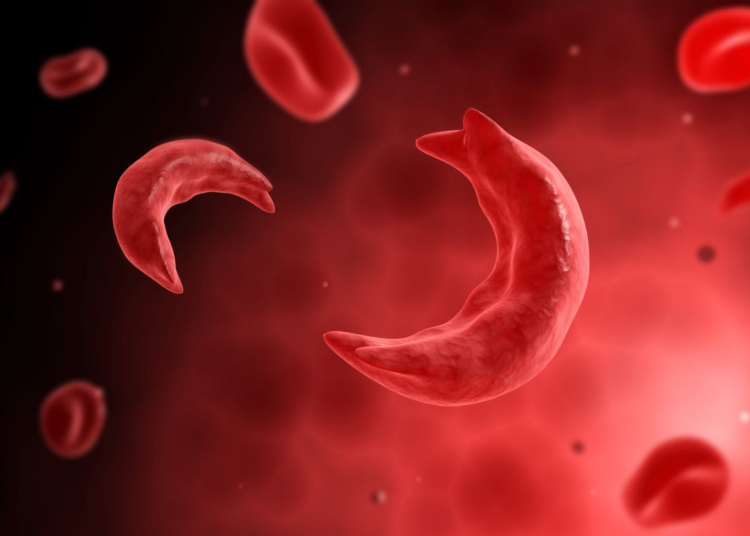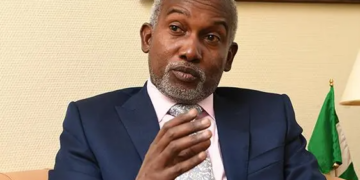For Adebimpe Sobowale (not her real name) having a major health crisis at just six years old is a constant reminder of the pains of the past and those she already anticipates.
Although she was always in and out of the hospital, she didn’t have another major crisis until the age of 11, when she got into boarding school and had a near-death experience.
“I had a crisis every year in the university and my parents will come for me. I remember being ill during my third year when I missed taking a major course.
My mom was with me in the university clinic till I got strong enough to travel back to Lagos where I continued with the treatment,” she narrated.
Sobowale, now 35 years old, said that over the years, she learnt to understand how to manage her condition.
Similarly, 18-year-old Nafisat Oladele only confirmed her status as a sickle cell patient two years ago after a major crisis.
“My parents knew but did not tell me. In my mind I did not see myself as one with any disorder until I requested for a test. That was when I confirmed my condition”, she said.
Sobowale’s and Oladele’s experiences with sickle cell disease are just two of many cases in Nigeria, as the country accounts for the highest number of cases in the world.
Sickle cell disease, a haemoglobin disorder, is a genetic disease that affects red blood cells and changes them into stiff, sticky, sickle cells that block blood flow and can cause pain and tissue damage.
A non-communicable disease, it can only be inherited from parents who both have the AS genotype, and at every pregnancy they have 25 per cent assurance that the baby could be SS.
Symptoms of the disease include excessive fatigue or irritability from anemia fussiness in babies, bedwetting from associated kidney problems and jaundice.
Others are swelling and pain in hands and feet, frequent infections, pain in the chest, back, arms, or legs, leg ulcer, and priapism (prolonged erection of the penis).
According to the WHO, no fewer than 300,000 babies with severe haemoglobin disorders are born globally each year, with 75 per cent found in sub-Saharan Africa.
Of that percentage, Nigeria is said to carry 66 per cent of the burden in the region, translating into between 100,000 to 150,000 babies born with sickle cell disease yearly.
Experts say there are many factors responsible for the continued rise of the disease in Nigeria.
Mr Yemi Onijala, the Coordinator, National Sickle Cell Centre DNA Laboratory/ Bone Marrow Transplant (BMT) Programme, Lagos, said in spite of statistics from international orgnanisations, there is no reliable data locally on the people living with the disease in the country.
He also said that, unlike some diseases that have adequate funding and data, sickle cell has received less attention from the governments compared to other diseases.
“At the moment we have a bill at the National Assembly advocating that sickle cell patients be treated free of charge but the bill is yet to scale through.
“We have had several meetings with government officials at different levels and we will continue to dialogue with them until someone listens to us”, he said.
He also said many people who thought they have AA genotype and went ahead to marry AS partners to avert their children having the disease often later realise they had been misdiagnosed with the wrong genotype.
Josephine Olunaike, a 50-year-old survivor of the disease and Founder, Beulah Sickle Cell Foundation, agreed that awareness about the disorder was insufficient.
According to her, judging from the high rate of newborns with the disorder in Nigeria, it is evident that enough public enlightenment has not been carried out.
“Presently, the interventions are not as they should be because NGOs do more of the job. Although the federal government has sickle cell offices in the six geo-political zones, they are not fully functional.
“We also have issues with the affordability of treatments. There are lots of complications in sickle cell treatment because not much is being done in our hospitals to provide the right diagnosis and treatment tools.
“Also, many people still think that it is a spiritual problem or a curse on parents as a punishment for something they had done. Society too stigmatises those who suffer from the disease”, she said.
For the President, Sickle Cell Aid Foundation, Ms Elmer Aluge, early diagnosis of the disease in patients, especially babies, is important in ensuring that they subsequently live normal lives.
According to her, early detection would help them begin to receive treatment early enough and avoid complications later in life.
“That is why we are advocating early diagnosis in babies in Nigeria because with this, we will know whether the genotype is SC or SS or if they have the sickle cell trait at all”, she said.
Dr Adewumi Oyesakin, Consultant Pediatrician, National Hospital, Abuja, said that many people are not aware of their genotype status therefore ignorantly go into relationships or marriage.
She said traditional and faith-based institutions were beginning to understand that genotype AS exists and marriage between couples of that same genotype may result in having children with sickle cell disease.
However, she said little is being done to prevent such unions.
Dr Salma Anas-Kolo, the Director, Public Health, Federal Ministry of Health, said Nigeria has invested so much in trying to reduce the burden.
“I will just mention two major strides made by the government of Nigeria, the most recent one, just a few months ago, is the development of a herbal remedy.
“It is called Emaprison and was developed by the National Institute for Pharmaceutical Research and Development (NIPRD).
“As a result of advocacy by the Federal Ministry of Health, in partnership with civil society organisations, private sector and the other parastatals, the National Assembly passed a bill in 2021.
“The bill is about issues around prevention of sickle cell disease, strengthening health systems to be able to provide quality services for children that are already affected by sickle cell.
“It also seeks to ensure that they live a life free from pain,” she said. (NANFeatures)
We’ve got the edge. Get real-time reports, breaking scoops, and exclusive angles delivered straight to your phone. Don’t settle for stale news. Join LEADERSHIP NEWS on WhatsApp for 24/7 updates →
Join Our WhatsApp Channel










